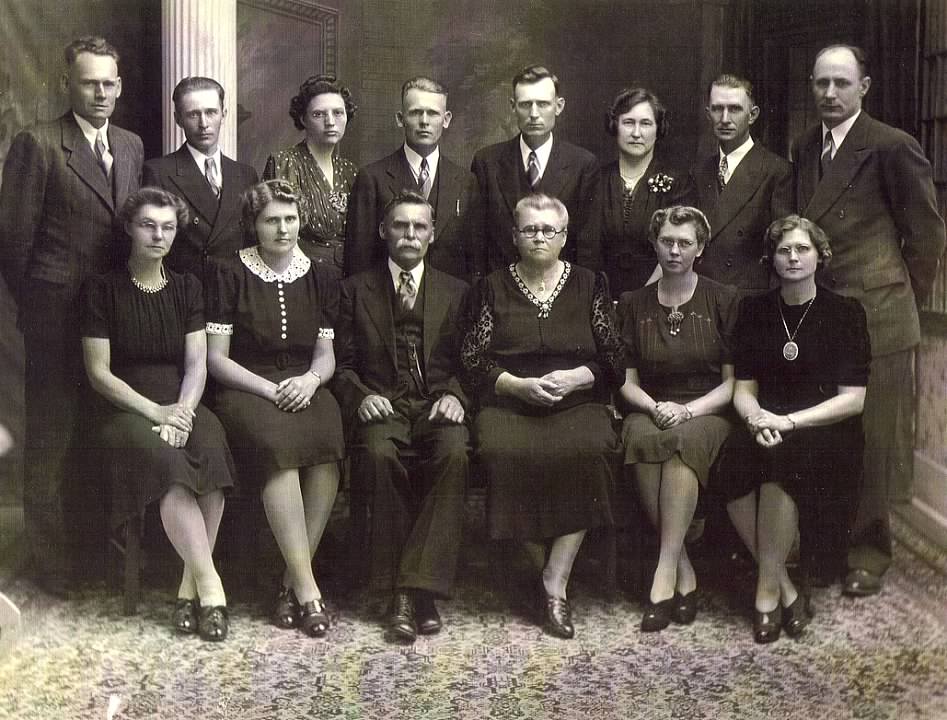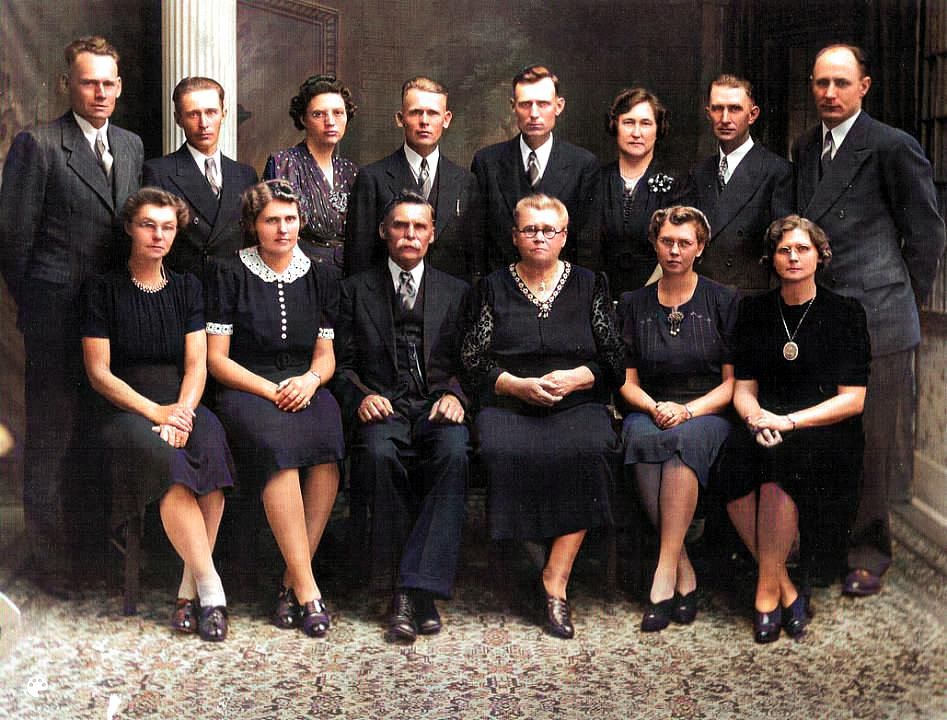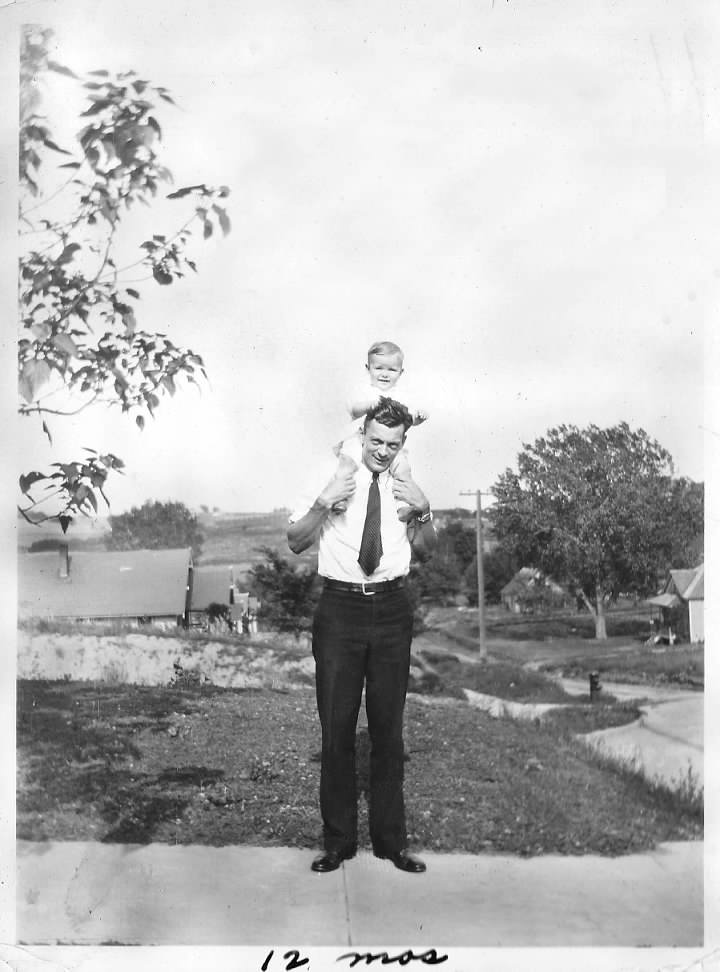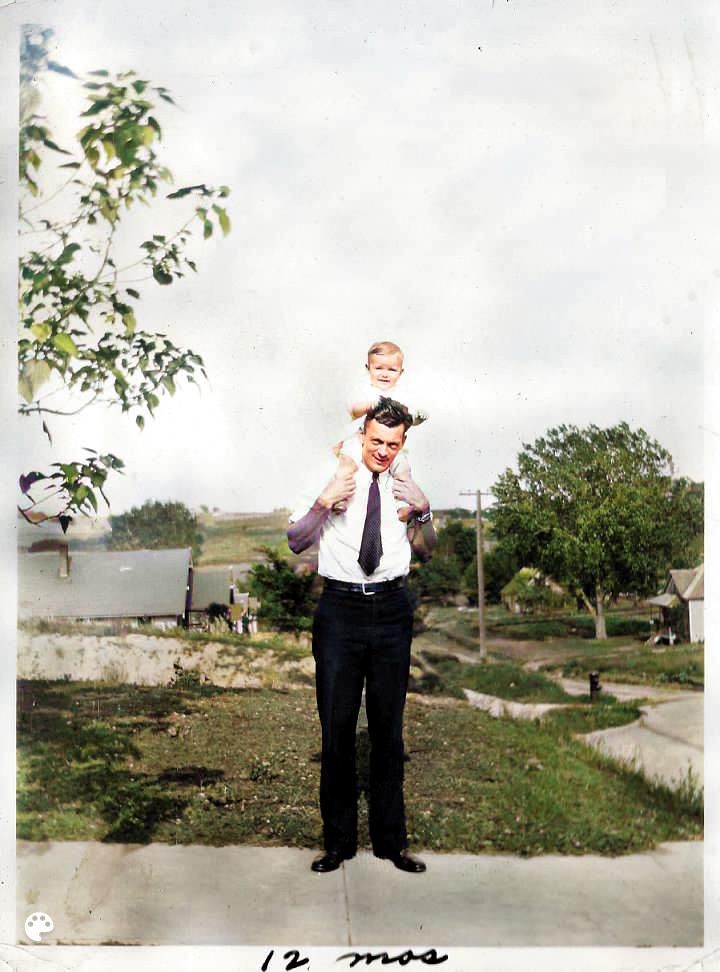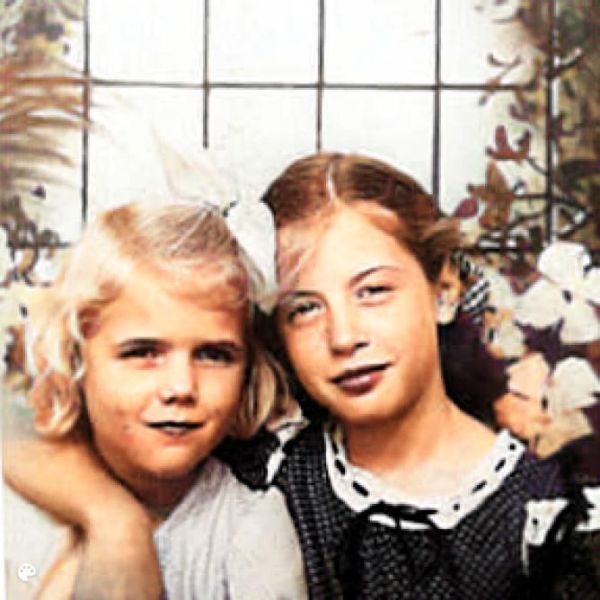
Joseph Case was an Iowa farmer. He came to Iowa as a youngster, after his family moved west in the early 19th century. Joseph was also my 2nd great grandfather.
As the Case family made its way, over generations, to Iowa, they stopped in Kentucky, where Joseph was born, and in Indiana. Precisely where the American Cases originated is still a bit of a mystery. I’ve been chipping away at the mystery for years, and the name most likely stretches back to Southold, New York, and before that, a ship voyage from England. The rest of Joseph’s heritage, well documented, reaches back to colonial Virginia.
This coming week is the 122nd anniversary of Joseph’s death in Central Iowa, where he is buried in the Duncombe Township (Methodist) Cemetery. My late father remembered that when he visited Duncombe with his parents from Sioux City, the extended family would walk to the cemetery to see Joseph’s gravesite. I first visited that cemetery 10 years ago and wrote about Joseph’s gravestone in one of my earliest posts, My Father’s House.

I recently had a chance to take a closer look at Joseph. For several weeks I have been attending a genealogy class online through the Salt Lake Institute for Genealogy (SLIG) to revitalize my research skills. Happily, the class was a chance to learn more about federal land records. I’ve long wanted to strengthen my knowledge of land records, knowing it would be a useful tool to investigate the Cases, who arrived in Iowa very near the time it was attaining statehood. Doing this so close to the anniversary of Joseph’s death made clear it was time for his profile.
Joseph Royalty Case was born in Kentucky in April 1830, one of about a dozen children of Obadiah and Elizabeth Louisa Case. The year Joseph was born, Andrew Jackson was president. The Case family soon migrated to Indiana, where some of Joseph’s siblings were born. By 1850, four years after Iowa became a state, Joseph, age 20, was living on his father’s farm in eastern Iowa, not far from the Mississippi River, in Clinton County.
Joseph first purchased his own land in eastern Iowa in 1852, the same year he married Eliza Jane Russell, whose family had also arrived from Indiana. The Case farm was purchased under a federal program that reduced the cost per acre and the minimum acreage required to be purchased, as long as the land was paid for upfront, in full. The Cases would purchase more land in 1852, 1853, and 1854.
By 1860, Joseph and Eliza had two young children and a modest 70-acre farm, valued at $500, with just under half of the land improved, and farming equipment worth about $125. The farm had two horses, three milk cows, six working oxen, four cattle and two swine. That year, they produced 300 bushels of “Indian corn” and 60 bushels of oats.
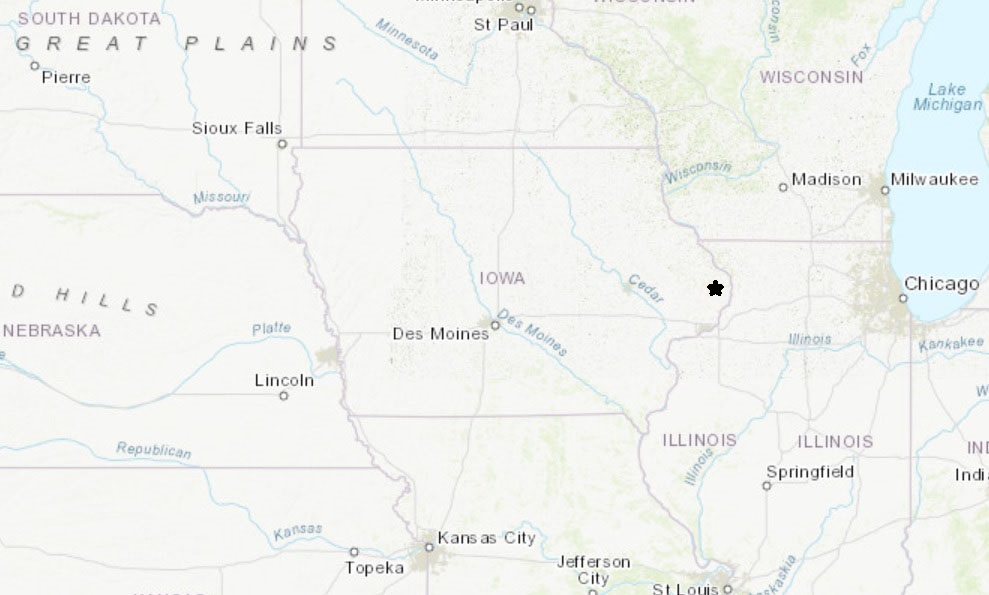
farm of Joseph Case.
By 1870, the farm had grown to 240 acres, with all but about 20 acres improved, and was now valued at $6,000. The family owned 13 horses, three milk cows, six cattle, 28 sheep, and 10 swine. That year the farm produced 1,200 bushels of spring wheat, 900 bushels of corn, and 500 bushels of oats.
By this time the household was bustling with six children, including my great grandmother Martha, then about age 4. In the years since he purchased the farm, Joseph had lost his younger brother Beniah, a Union soldier in the Civil War, who as a member of an Iowa regiment had succumbed to illness in Arkansas. He would later lose his father, Obadiah, who is buried in a pioneer cemetery not far from the farm in rural Clinton County. In the next 10 years, Joseph would lose his mother, Elizabeth Louisa, who is buried with Obadiah. In the midst of this loss, one more child would be born to Joseph and Eliza and named after Joseph.
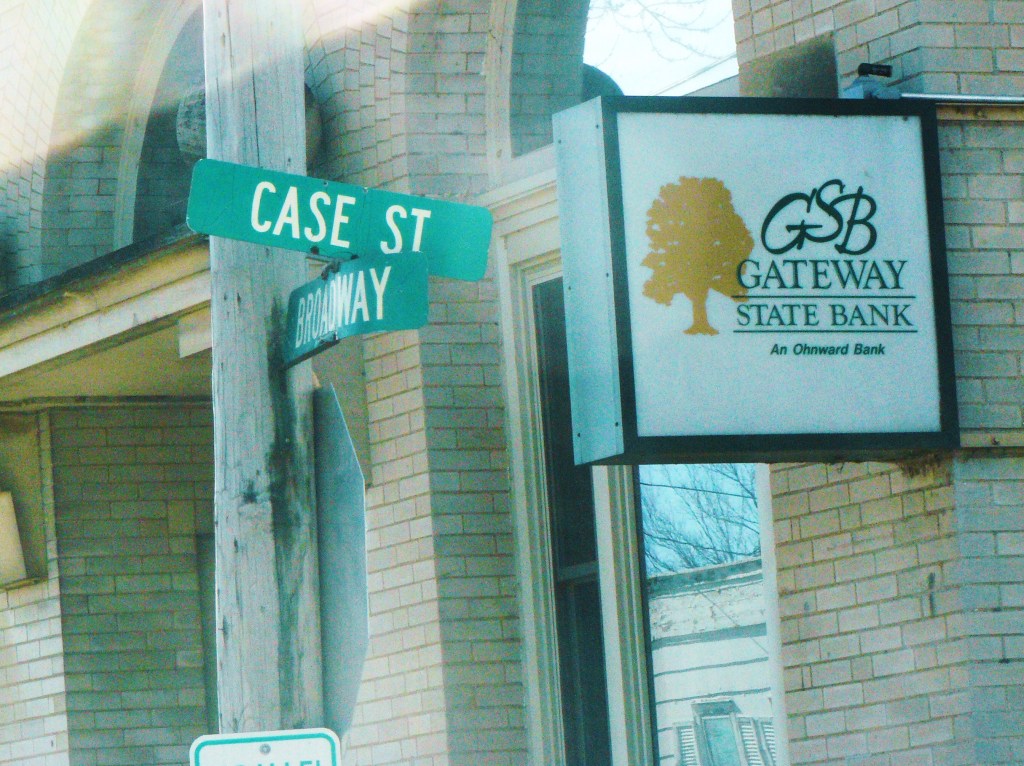
Joseph would soon move the family north, just over the county line to Jackson County, where in 1880 the family resided in Van Buren Township, northeast of Preston. His obituary in the Preston Independent said he was “in business” there and “owned a farm.” Joseph is still listed as a farmer in the Census of that year, and my great grandmother Martha was “at school.” Martha was 14 years old now, with two older and two younger siblings in the home. The Cases lived in Jackson County for more than a decade, until 1886.
In their later years, Joseph and Eliza found their way to Central Iowa, and in 1890 moved to Duncombe, the home community of their daughter Martha, my great grandmother. Martha had married Jacob Clausen, a Danish immigrant, while they were still in eastern Iowa, and was raising her family in Duncombe. Joseph would live in Central Iowa until his wife Eliza’s death in 1898 and his own death one year later.
I’ve yet to uncover either a scandalous misstep or a showy achievement to attach to Joseph. We learn from his obituary, this: “He was a straightforward, upright man and was held in high esteem by all who knew him.” He raised a family, built a farm, stayed close to his home, did some business, made some friends, and spent time with his children and grandchildren in his final years. He died just as the 19th century was drawing to a close. And more than 120 years later, his descendants still visit his grave.
He was an Iowa farmer. Salt of the earth. I’m grateful for that. Rest in perfect peace, Joseph.

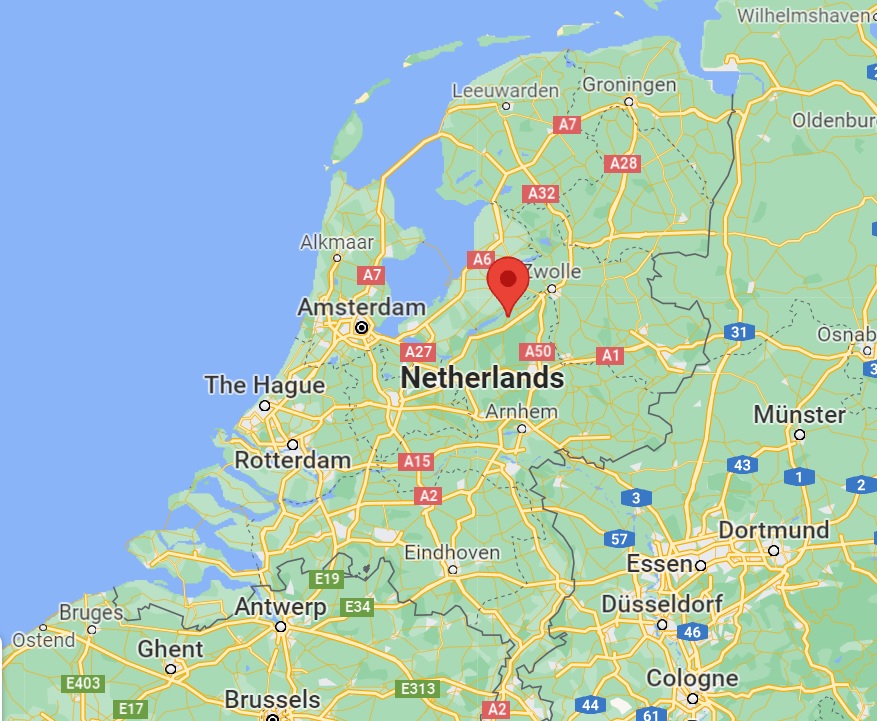 Hendrik, who was my 2nd great grandfather, was born 147 years before Doornspijk was absorbed into the historic city of
Hendrik, who was my 2nd great grandfather, was born 147 years before Doornspijk was absorbed into the historic city of 
 Beniah Case was born on October 15, 1834, to Obadiah James Case and Louisa Royalty Case. He grew up on a farm in eastern Iowa, not far from the Mississippi River. Beniah died in 1862, at age 28, far from home in Arkansas.
Beniah Case was born on October 15, 1834, to Obadiah James Case and Louisa Royalty Case. He grew up on a farm in eastern Iowa, not far from the Mississippi River. Beniah died in 1862, at age 28, far from home in Arkansas. Beniah’s first name is a form of the Biblical
Beniah’s first name is a form of the Biblical 
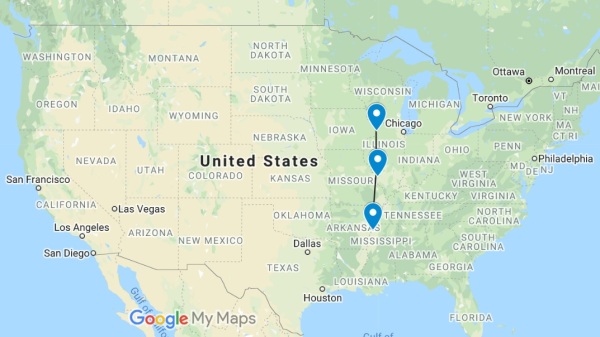
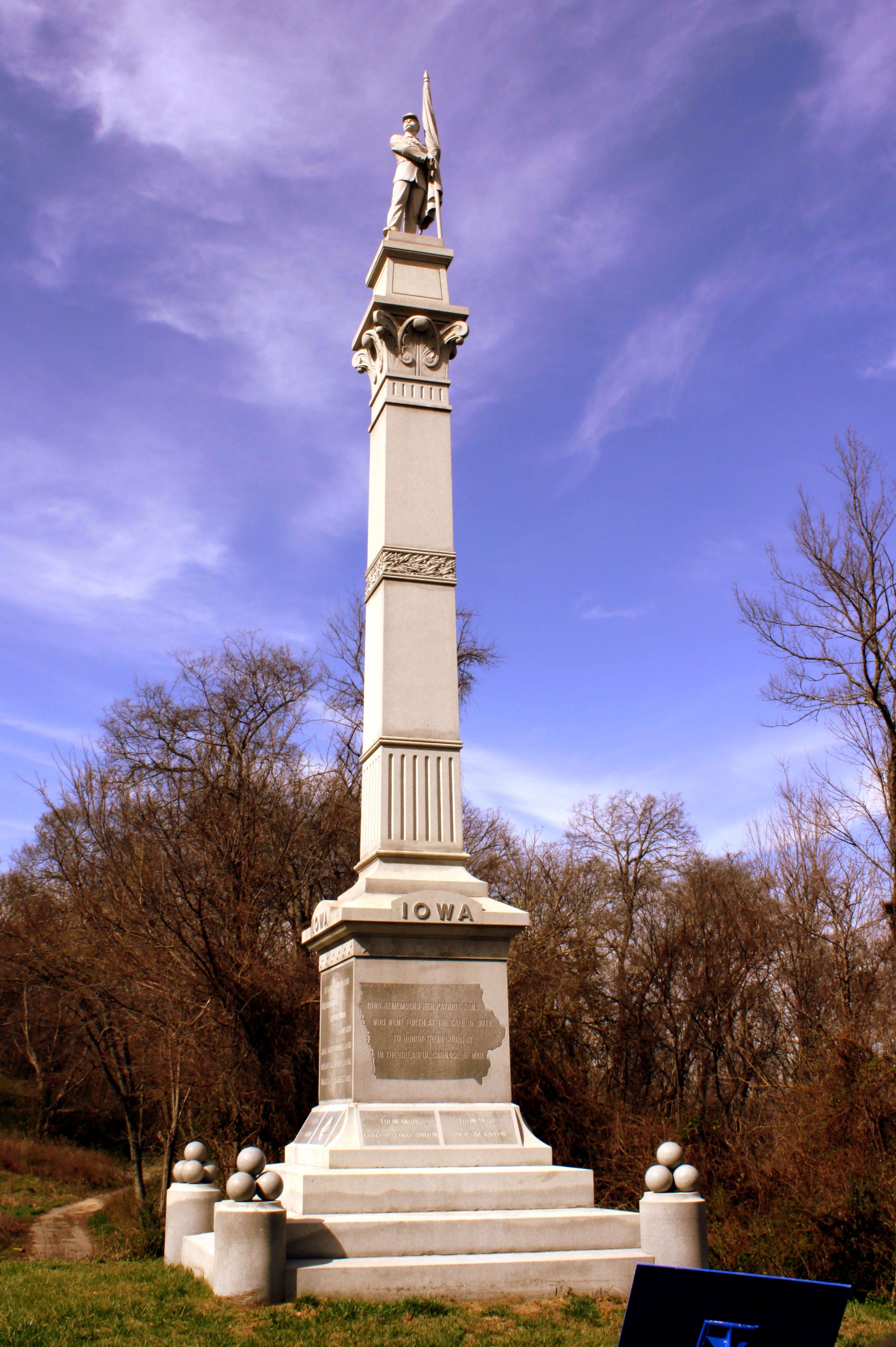
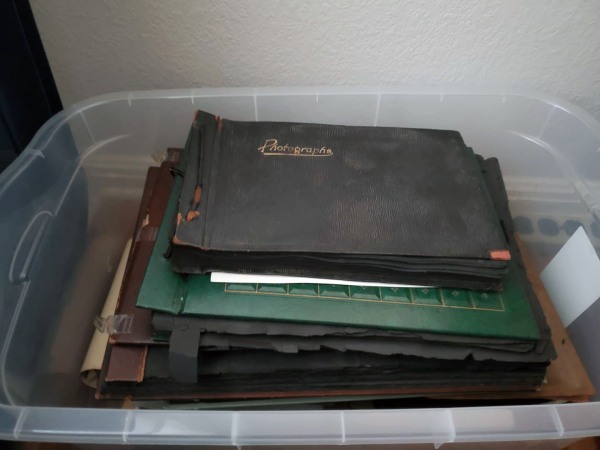 In some areas of my life, I am highly organized. As yet, my genealogy has not been one of them. This is in no way an indication of its importance to me … it’s just that I kind of stumbled into genealogy and, since then, have tended most of the time to follow my muse more than any thought-out plan. I’ve accomplished a lot of genealogy this way, but the fruits of it are … shall we say … scattered among many boxes and stacks. For one thing, I am still trying to figure out the best way to preserve the nearly 100-year-old photo album, at right, that we inherited from my paternal grandparents.
In some areas of my life, I am highly organized. As yet, my genealogy has not been one of them. This is in no way an indication of its importance to me … it’s just that I kind of stumbled into genealogy and, since then, have tended most of the time to follow my muse more than any thought-out plan. I’ve accomplished a lot of genealogy this way, but the fruits of it are … shall we say … scattered among many boxes and stacks. For one thing, I am still trying to figure out the best way to preserve the nearly 100-year-old photo album, at right, that we inherited from my paternal grandparents.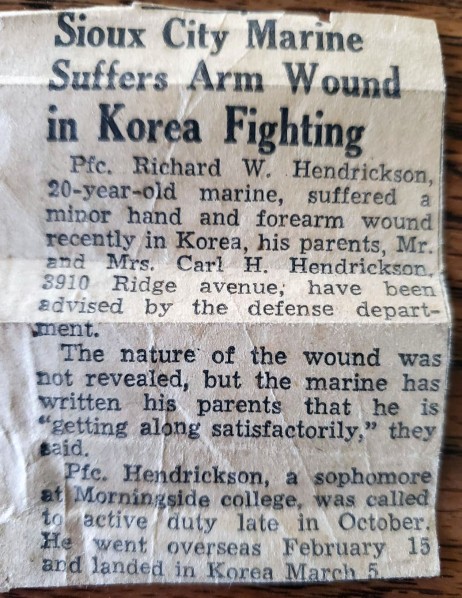 In the midst of it all, though, I re-discovered a small, fragile, yellowed news clipping that I assume is from 1950 or 1951 and which I may have really looked at only once or twice in my life. It’s a brief announcement that my then 20-year-old father had suffered a minor arm wound in Korea. There is no date on it, nor any indication of the newspaper in which it appeared, but I assume it was the Sioux City (Ia) Journal. It indicates that Dad was “getting along satisfactorily.” Yes, that sounds like him.
In the midst of it all, though, I re-discovered a small, fragile, yellowed news clipping that I assume is from 1950 or 1951 and which I may have really looked at only once or twice in my life. It’s a brief announcement that my then 20-year-old father had suffered a minor arm wound in Korea. There is no date on it, nor any indication of the newspaper in which it appeared, but I assume it was the Sioux City (Ia) Journal. It indicates that Dad was “getting along satisfactorily.” Yes, that sounds like him. It must have been shortly after he arrived in Korea, and he may not yet have known how hard things would get. With the clipping was some sort of metal pin or fastener that appears to be the Marine Corps insignia and is quite worn and weathered, as well as a news clipping announcing the death in Korea of 21-year-old Pfc. Lawrence Hansen, who must have been a family friend. It will all find a safe place in the genealogy room.
It must have been shortly after he arrived in Korea, and he may not yet have known how hard things would get. With the clipping was some sort of metal pin or fastener that appears to be the Marine Corps insignia and is quite worn and weathered, as well as a news clipping announcing the death in Korea of 21-year-old Pfc. Lawrence Hansen, who must have been a family friend. It will all find a safe place in the genealogy room.
 It’s hard to believe my grandfather’s grandfather was born almost two centuries ago. This week is the 196th anniversary of the birth of my 2nd great-grandfather, Peder Malum. Peder was born in Oyer, Oppland, Norway, in 1824, to Arne and Marit Hovren Mahlum, and died in Kamrar, Iowa, United States, in 1900.
It’s hard to believe my grandfather’s grandfather was born almost two centuries ago. This week is the 196th anniversary of the birth of my 2nd great-grandfather, Peder Malum. Peder was born in Oyer, Oppland, Norway, in 1824, to Arne and Marit Hovren Mahlum, and died in Kamrar, Iowa, United States, in 1900.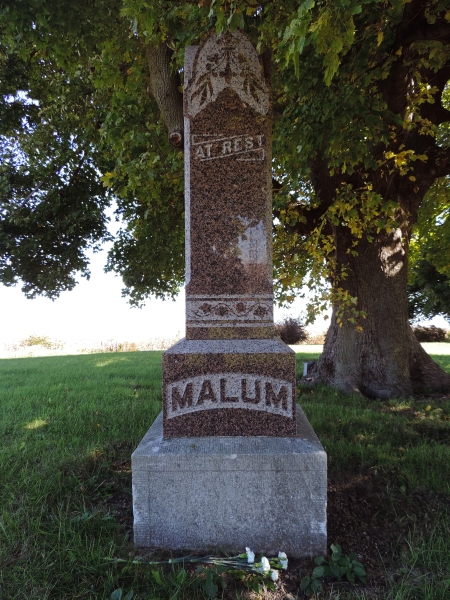 “The death of Peter Malum last Wednesday near Kamrar, Iowa, was indeed a sudden and unexpected blow to family, friends and neighbors. He was an old man, beloved by all who knew him; hale and hearty, apparently, but like a wise man, prepared for the future while well, by getting a heart knowledge of the Great Savior of men.
“The death of Peter Malum last Wednesday near Kamrar, Iowa, was indeed a sudden and unexpected blow to family, friends and neighbors. He was an old man, beloved by all who knew him; hale and hearty, apparently, but like a wise man, prepared for the future while well, by getting a heart knowledge of the Great Savior of men.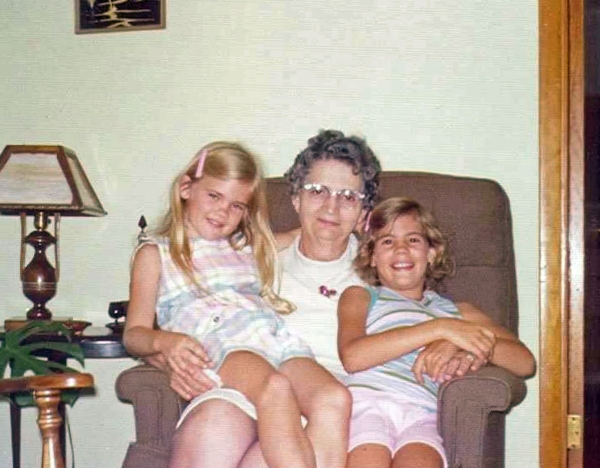 Today, March 20, is the 110th anniversary of the birth of my maternal grandmother, Henrietta (“Hattie”) Van den Bosch Kreykes. I’ve been thinking about her a lot today, in the midst of navigating the effects of the coronavirus crisis in my personal and work life. Everyone in my family seems to be doing fine so far, but the social distancing has affected us all in one way or another.
Today, March 20, is the 110th anniversary of the birth of my maternal grandmother, Henrietta (“Hattie”) Van den Bosch Kreykes. I’ve been thinking about her a lot today, in the midst of navigating the effects of the coronavirus crisis in my personal and work life. Everyone in my family seems to be doing fine so far, but the social distancing has affected us all in one way or another. My grandmother was a quiet woman when I knew her, and one talent she had that I always admired was her needlework. Today I took out the afghan she made for me years ago, just like the ones she made for all of her grandchildren, and a table covering, much like the doilies she made in abundance. They are comfort items. Once when she was visiting us from Iowa, I was impressed that she sewed Bluebird/ Campfire Girl uniforms for both my sister and me in one day. She probably took this talent in stride, but I was always impressed by it and remain so. It was a practical talent, not a self-indulgent one.
My grandmother was a quiet woman when I knew her, and one talent she had that I always admired was her needlework. Today I took out the afghan she made for me years ago, just like the ones she made for all of her grandchildren, and a table covering, much like the doilies she made in abundance. They are comfort items. Once when she was visiting us from Iowa, I was impressed that she sewed Bluebird/ Campfire Girl uniforms for both my sister and me in one day. She probably took this talent in stride, but I was always impressed by it and remain so. It was a practical talent, not a self-indulgent one.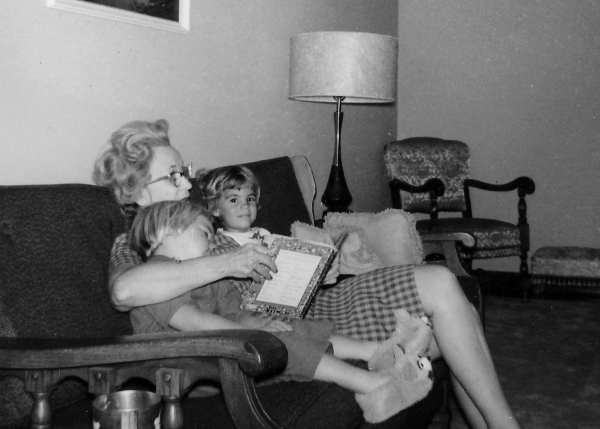 Yesterday, March 5, was the 116th anniversary of the birth of my paternal grandmother, Dorothy Clausen Hendrickson.
Yesterday, March 5, was the 116th anniversary of the birth of my paternal grandmother, Dorothy Clausen Hendrickson.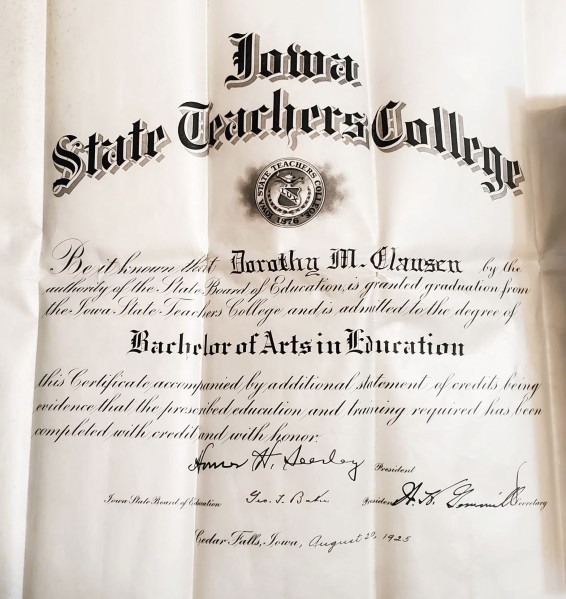 I have so many questions for my grandmother now that are better than the ones I had when I was younger. It makes sense that as an English teacher she passed on a love of reading to my father, who passed it on to me, and for that I am sincerely grateful.
I have so many questions for my grandmother now that are better than the ones I had when I was younger. It makes sense that as an English teacher she passed on a love of reading to my father, who passed it on to me, and for that I am sincerely grateful.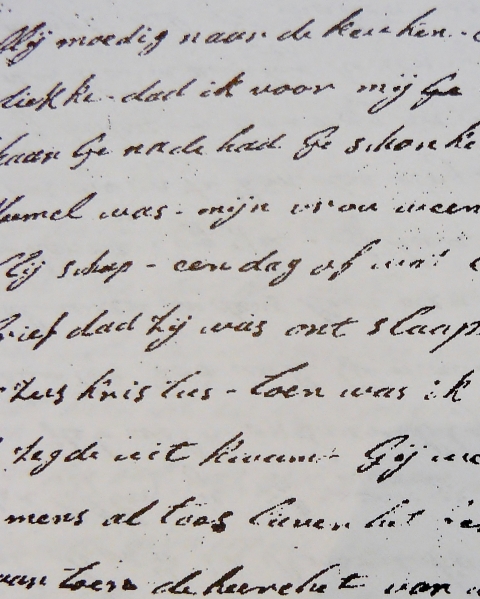 The letters. Discovering that my 2nd great grandfather, Jan Willem Kreijkes, had written a series of letters from Iowa to the Netherlands around the turn of the 20th century — and that they were available to read and copy — was one of my earliest and most cherished discoveries. The letters are included in a collection of Dutch immigrant letters housed in the archives of the Christian Reformed Church at Calvin University in Grand Rapids, Michigan. They were translated from Dutch to English by an unknown translator. I acquired copies a few years ago and not only enjoyed reading them as a way to get to know Jan Willem better, but I am still mining them for clues and information about the Kreijkes/Kreykes family. I have a series on this blog,
The letters. Discovering that my 2nd great grandfather, Jan Willem Kreijkes, had written a series of letters from Iowa to the Netherlands around the turn of the 20th century — and that they were available to read and copy — was one of my earliest and most cherished discoveries. The letters are included in a collection of Dutch immigrant letters housed in the archives of the Christian Reformed Church at Calvin University in Grand Rapids, Michigan. They were translated from Dutch to English by an unknown translator. I acquired copies a few years ago and not only enjoyed reading them as a way to get to know Jan Willem better, but I am still mining them for clues and information about the Kreijkes/Kreykes family. I have a series on this blog,  The book. Another early discovery was a book called Sleeps Not the Valley by Carmen Moe. The series of events that led to me discovering this book were so swift and unexpected that I don’t even remember how they originated. The book was self-published by a distant cousin and includes an introductory section on Norwegian history and a full chapter about my direct ancestors, the Malums of Øyer. The information was drawn from Norwegian records and bygdeboks. Bygdeboks are local histories that were written by Norwegian communities and sometimes included rich details of people’s lives. Sleeps Not the Valley was out of print, and at the time I was able to find only one available pre-owned copy from a book seller online. I bought it, and from that book I learned not only more details of the Malum genealogy but a little about what their home was like and about their involvement in the Haugean religious movement. It opened up my understanding of my Norwegian ancestors.
The book. Another early discovery was a book called Sleeps Not the Valley by Carmen Moe. The series of events that led to me discovering this book were so swift and unexpected that I don’t even remember how they originated. The book was self-published by a distant cousin and includes an introductory section on Norwegian history and a full chapter about my direct ancestors, the Malums of Øyer. The information was drawn from Norwegian records and bygdeboks. Bygdeboks are local histories that were written by Norwegian communities and sometimes included rich details of people’s lives. Sleeps Not the Valley was out of print, and at the time I was able to find only one available pre-owned copy from a book seller online. I bought it, and from that book I learned not only more details of the Malum genealogy but a little about what their home was like and about their involvement in the Haugean religious movement. It opened up my understanding of my Norwegian ancestors. The pictures. All of the photos I’ve discovered that I never thought I would, especially the oldest ones, have absolutely been among my favorite discoveries. But speaking of the Malums (above), the pictures that came to light of my 3rd great grandparents, who never left Norway, truly caught me by surprise. I call them “pictures” rather than “photos” because they seemed to be a combination of photo and illustration and thus intrigued me. I had come to terms with Arne and Marit Malum remaining silhouettes in the family tree — because after all, they were born in the 1780s and never left Norway — but then their pictures emerged. It started me on a quest to find out how such pictures were produced, and I even wrote a post speculating that the pictures were a form of charcoal
The pictures. All of the photos I’ve discovered that I never thought I would, especially the oldest ones, have absolutely been among my favorite discoveries. But speaking of the Malums (above), the pictures that came to light of my 3rd great grandparents, who never left Norway, truly caught me by surprise. I call them “pictures” rather than “photos” because they seemed to be a combination of photo and illustration and thus intrigued me. I had come to terms with Arne and Marit Malum remaining silhouettes in the family tree — because after all, they were born in the 1780s and never left Norway — but then their pictures emerged. It started me on a quest to find out how such pictures were produced, and I even wrote a post speculating that the pictures were a form of charcoal 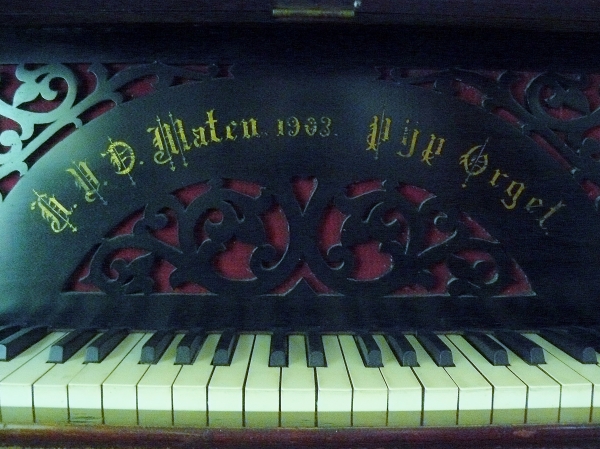 The organ. It was a 3rd cousin who first pointed me to the small pipe organ built by my 2nd great grandfather, Harmen Van der Maaten, a Dutch immigrant. I learned that it was housed in a local historic home (unrelated to the family) in Orange City, Iowa, that was open to the public. However, because the home was only truly open certain times of the year, some very kind people in the community arranged for me to be let in, see the organ, and even try to play it a little. I have been back a couple of times since, during the annual Tulip Festival when tours through the home are ongoing, and I always stop to take another look and pay respects.
The organ. It was a 3rd cousin who first pointed me to the small pipe organ built by my 2nd great grandfather, Harmen Van der Maaten, a Dutch immigrant. I learned that it was housed in a local historic home (unrelated to the family) in Orange City, Iowa, that was open to the public. However, because the home was only truly open certain times of the year, some very kind people in the community arranged for me to be let in, see the organ, and even try to play it a little. I have been back a couple of times since, during the annual Tulip Festival when tours through the home are ongoing, and I always stop to take another look and pay respects. 